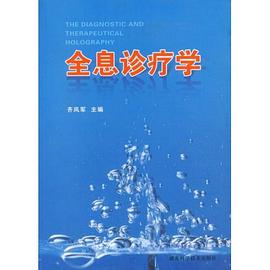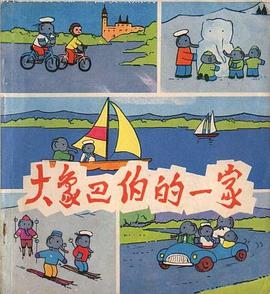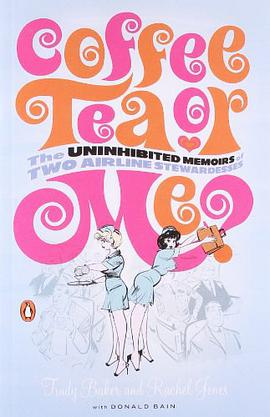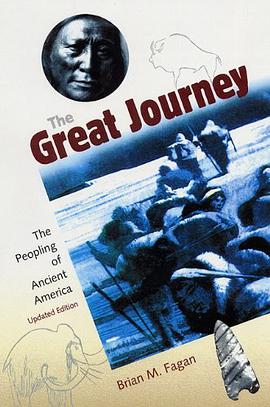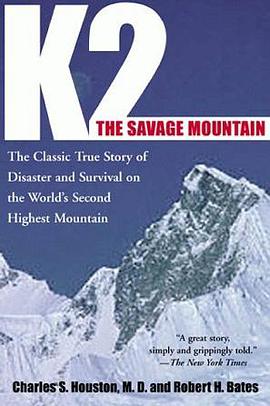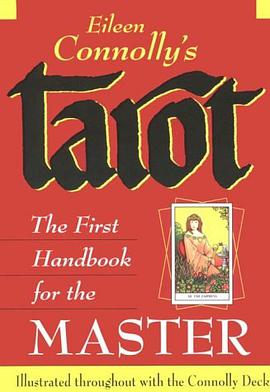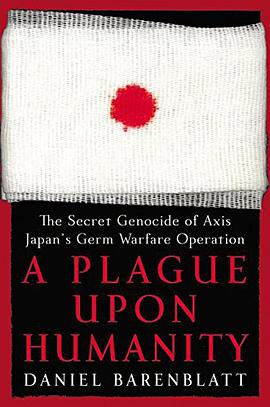

具体描述
在线阅读本书
Book Description
In wartime Japan's bid for conquest, humanity suffered through one of its darkest hours, as a hidden genocide took the lives of hundreds of thousands of innocent people. Cloaked in secrecy and protected under the banner of scientific study, the best and brightest of Japan's medical establishment volunteered for a major initiative in support of the military that involved the systematic murder of Chinese civilians. With the help of the United States government, they were allowed to get away with it. Based on important original research, this book reveals as never before the full extent of this crime, in a story that is as compelling as it is terrifying.
Beginning in 1931, the military of Imperial Japan came up with a new strategy to further the nation's drive for expansion: germ warfare. But they needed help to figure out how to do it. So they recruited thousands of doctors and research scientists, all of whom accepted willingly, in order to develop a massive program of biological warfare that was referred to as "the secret of secrets." This covert operation consisted of horrifying human experiments and germ weapon attacks against people whose lives were seen as expendable, including Chinese men, women, and children living in Manchuria and other areas of Japanese occupation. Even American POWs were targeted.
At the forefront of this disturbing enterprise was an elite organization known as Unit 731, led by Japan's answer to Joseph Mengele, Dr. Shiro Ishii. Under Ishii's orders, captives were subjected to deeds that strain the boundaries of imagination. Men and women were frozen alive to study the effects of frostbite. Others were dissected without anesthesia. Tied to posts, victims were infected with virulent strains of anthrax and other diseases. Entire cities were aerially sprayed with fleas carrying bubonic plague. All told, more than five hundred thousand people died. Yet after the war, U.S. occupation forces under General Douglas MacArthur struck a deal with the doctors of Unit 731 that shielded them from accountability for their atrocities.
In this documented work, Daniel Barenblatt has drawn upon startling new evidence of Japan's germ warfare program, including firsthand accounts from both perpetrators and survivors. Authoritative, alarming, and gripping from start to finish. A Plague upon Humanity is a investigation that exposes one of the most shameful chapters in human history.
From Publishers Weekly
Only last year did a Japanese court acknowledge that Japanese germ warfare experiments in China took place during WWII. A useful overview of the history of biological warfare provides a historical context for the gruesome experiments on humans that began in northern China in the early 1930s, linked to the military expansion Japan began during the 1930s and fathered by scientist Shiro Ishii, who figures prominently in the book among the 20,000 Japanese professionals involved (some of whom knowingly distributed tainted food). The accounts of experiments on humans and massive germ warfare attacks against civilians-more than 400,000 Chinese died of cholera after two attacks in 1943-include the testimony of Chinese victims and witnesses as well as some Japanese. While most atrocities were committed against Chinese and Koreans, some Westerners, including American prisoners of war, were also victims. The most thoughtful portions of the book, Washington Post contributor Barenblatt's debut, explore how such atrocities "...coldly preserve medicine's scientific devices while annihilating all its high ideals." Shameful U.S. government efforts, spearheaded by MacArthur, to protect the Japanese perpetrators from prosecution in exchange for their research, even to the extent of characterizing the only war crimes trial that prosecuted perpetrators as propaganda (it was conducted by the Soviets), are well documented. The postwar material includes highly controversial claims of America's use of biological warfare during the Korean War. Although many of the gruesome facts have been published before, Barenblatt brings together the many contexts of how Japan's war machine came to commit medical-biological war crimes on a massive scale, with a final death toll of 580,000.
From Booklist
Journalist Barenblatt, an expert on Japanese biological warfare, valuably summarizes the known facts and reasonable speculations about it. Like many other aspects of science in Japan, the country's knowledge of biology was much more advanced before World War II than the rest of the world believed. Japan's biological warfare capability, carefully developed with the direct support of the emperor, had been tested upon Chinese and Western subjects and deployed operationally at the cost of as many as a million Chinese lives. After the war, cold war politics prevented war-crimes prosecution of Japanese biowar experts and may have led to the use of their talents and stocks of material in Korea (Barenblatt grants that such use has not been proven). Barenblatt's useful addition to the literature on biological warfare and WWII belongs on the same shelf as Iris Chang's The Rape of Nanking (1997) and studies of the comfort girls, where it may, however, raise the hackles of Japanese still in the dark about their country's war crimes.
Roland Green
Book Dimension
Height (cm) 23.6 Width (cm) 16
作者简介
目录信息
读后感
评分
评分
评分
评分
用户评价
坦白说,我很少能看到一部作品能将哲思的深度与情节的推进融合得如此自然。这部小说探讨的主题是沉重且永恒的:文明的脆弱性,以及知识在面对真正颠覆性挑战时的局限性。作者似乎在质问我们,我们所建立的一切——法律、道德、科学认知——究竟有多么坚固?故事中的转折点处理得非常高明,它们不是突兀的意外,而是长期埋伏的隐患终于爆发的结果,这使得整个悲剧更具必然性和宿命感。我特别关注到作者在处理“希望”这个概念时的克制。它不是廉价的安慰剂,而是需要付出巨大代价、时常伴随着巨大风险才能勉强抓住的一线微光。阅读过程中的情感体验是复杂的,时而愤怒于某些角色的愚昧,时而又为那些微小的、近乎不可能的善举而感动落泪。它强迫读者直面人性的阴暗面,同时也肯定了在最深沉的黑暗中仍能迸发出的微光。
评分这部作品无疑是一次令人震撼的精神洗礼。作者以一种近乎冷酷的笔触,剖析了人类文明在面对极端压力和未知威胁时的真实面貌。故事的开端就将读者猛地拽入一个失序的境地,那种从日常生活的琐碎突然跌入生存边缘的恐慌感,被描绘得丝丝入扣。我尤其欣赏作者对群体心理的细腻刻画,它不是简单的善恶二元对立,而是深入探讨了在绝境中,信任如何瓦解,以及人性中潜藏的自私与光辉是如何相互角力的。角色们的选择往往令人唏嘘,却又无比真实,让人忍不住反思自己在那种情境下会如何应对。叙事节奏的把控堪称一绝,高潮迭起的部分让人心跳加速,而那些短暂的喘息之机,又充满了对未来不确定性的沉重预示。它不仅仅是一个关于灾难的故事,更是一部关于人类精神韧性与脆弱性的深刻寓言,读完之后,那种久久不能散去的后劲,让人对我们习以为常的“正常世界”产生了全新的敬畏与警惕。
评分这部小说的魅力在于它的“真实性”,即使它讲述的是一个虚构的末日场景。作者没有回避那些最令人不适的细节,比如资源分配的不公、恐慌引发的暴力升级,以及体制在压力下的迅速解体。相比于许多只关注表面战斗场面的同类题材作品,这部作品更像是一部社会生态学的研究报告,它关注的是“系统”如何瓦解,以及幸存者如何在废墟上尝试重建哪怕是最基础的秩序。我发现自己常常停下来,不是因为情节太难懂,而是因为某个场景或某句对话触动了内心深处对于社会契约的理解。角色之间的互动充满了张力,每一次合作都像是一场高风险的赌博,因为你永远不知道对方的底线在哪里。这是一部需要被严肃对待的作品,它用极端的情境,挑战了我们对“文明”二字的传统定义,值得被反复讨论和品味。
评分这本书的结构设计简直是教科书级别的示范。它巧妙地采用了多线叙事,不同视角的切换非但没有造成混乱,反而像拼图一样,将一个宏大且复杂的图景徐徐展开。我们跟随着不同的核心人物,体验着从高层决策者的无力到底层挣扎者的绝望,每条线索都有其独特的张力和节奏感。尤其值得称道的是,作者在构建世界观时所展现出的严谨与想象力的完美结合。那些关于社会秩序崩溃后的新生态、新规则的设定,逻辑自洽,细节丰富,完全经得起推敲。这让我联想到一些经典的社会学实验,只是这次的“实验室”是整个破碎的文明。文字的质感非常醇厚,它不追求华丽的辞藻堆砌,而是用精准、有力的语言直击要害,画面感极强,常常让我感觉自己正身处其中,呼吸着污浊的空气,感受着身体的疲惫。这是一部需要沉下心来细细品味的佳作,每一次重读都会有新的发现。
评分从纯文学欣赏的角度来看,这部作品的语言功力简直是令人赞叹的。它的风格是冷静的、疏离的,但这种疏离感反而制造出一种令人不安的距离感,让读者得以更清晰地审视正在发生的恐怖。叙事者仿佛是一个冷眼旁观历史的记录者,记录下人类如何一步步滑向深渊,这种客观性,反而比主观的控诉更具穿透力。特别是对环境和氛围的描绘,简直是艺术级别的:那种挥之不去的、弥漫在空气中的压抑感,那种对曾经美好事物的追忆与现实的巨大反差,被作者用简练而精准的词汇构建出来。这本书的排版和装帧也很有品味,拿在手里,本身就有一种厚重感,符合其内容的分量。我强烈推荐给那些厌倦了套路化叙事,渴望体验真正有思考价值的文学作品的读者。它带来的阅读体验是充实而深刻的,绝非昙花一现的消遣之作。
评分 评分 评分 评分 评分相关图书
本站所有内容均为互联网搜索引擎提供的公开搜索信息,本站不存储任何数据与内容,任何内容与数据均与本站无关,如有需要请联系相关搜索引擎包括但不限于百度,google,bing,sogou 等
© 2026 book.wenda123.org All Rights Reserved. 图书目录大全 版权所有



